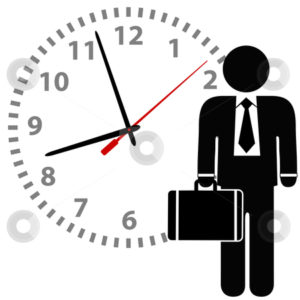Will Proposal to Extend Residency Shifts Lead to More Medical Errors?

In the latest development in this ongoing discussion, the Accreditation Council for Graduate Medical Education (ACGME) has proposed an increase in the number of consecutive hours that medical residents can work. This proposal represents a proverbial contradiction of the work hour limits, and research-based conclusions about sleep deprivation, that have prevailed for nearly twenty years. The debate continues: do work hour limits lead to increases or decreases in the quality of patient care in the United States? Let’s take a closer look at this issue.
The Evolution of Residency Hours Limits
As is often the case in life, tragedy paved the way for transformation as it relates to limitations in residency hours. Before 1987, limits on the number of hours that residents could work were utterly nonexistent. However, the death of a young woman at New York Hospital laid the groundwork for change. Libby Zion, the daughter of a New York Times columnist and a former publishing executive, died in 1984, after which her father wrote an opinion article discussing the prevalence of medical errors and the problems resulting from exhausted doctors who were treating patients and making mistakes. Libby’s death, and her father’s call to action, led to the development of the Bell Commission in 1987, and corresponding legislation passed in New York in 1989. The 1989 legislation limited residents to 24 consecutive hours and 80 hours per week.
Subsequent research on sleep deprivation led to additional limitations in 2003 and 2011. Specifically, the Accreditation Council for Graduate Medical Education (ACGME) limited the number of consecutive hours to 16 for first-year residents, and 24 hours for second- and third-year residents. Now, the ACGME has proposed an increase from 16 to 28 hours that residents should be allowed to work consecutively.
Sleep Deprivation and Medical Errors
Sleep deprivation has been linked with poorer performance in many human tasks. For instance, sleep deprivation is shown to decrease reaction time and driving capabilities, generating effects that rival that of alcohol. Similarly, sleep deprivation has been used as an interrogation technique because it lessens the defenses of individuals, often causing them to disclose information that they would otherwise refuse to provide. A study led by Kevin Volpp, MD., PhD., a professor of medicine at the University of Pennsylvania, affirmed the negative impacts of sleep deprivation on doctors’ mental acuity and performance. Considering the catastrophic consequences of medical errors for patients, it is not surprising that limitations have been imposed to restrict the number of hours that doctors can work.
On the other hand, the ACGME now argues that interruptions in residents’ shifts can lead to problems with the continuity of care, medical errors, and poorer quality overall. The logic behind this is that communication mistakes lead to problems and medical errors that may otherwise be prevented if the same doctor is still tasked with monitoring patient treatment. They also posit that residents must prepare for the longer hours that their professions will require. In other words, residents should become accustomed to extended hours with lack of sleep as soon as possible. The ACGME does not advocate an increase in the total number of hours worked (it will remain at 80 per week), so doctors will not be working more hours per week, but will only work more hours in one stretch.
What Hour Limits Mean for Patients
Ultimately, the goal is to prevent medical errors, and patient suffering, that results from human negligence. One wonders how sleep deprived doctors can logically be expected to provide the best quality of patient care when others cannot be expected to operate at maximum capacity when lacking adequate sleep. The resolution of this ongoing debate remains to be seen; however, patients should not be forced to sacrifice the standard of care that they deserve due to understaffed hospitals and overworked medical professionals.
Injured by an Over-Tired Doctor?
If you have been injured by an over-tired physician or another healthcare provider in New Jersey, contact our attorneys to discuss your case. We are available anytime to provide you with a free consultation.
Contact Us NowResources:
- Sleep deprivation and physician performance: why should I care?, Baylor University Medical Center Proceedings
- The Impact of Sleep Deprivation in Resident Physicians on Physician and Patient Safety: Is it Time for a Wake-up Call?, BCMJ
- Changes In Medical Resident Work Hour Limits Don’t Solve Big Problems

